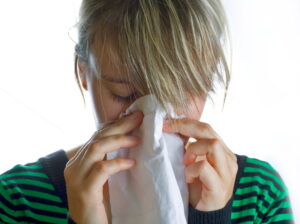When you live in Georgia, most homeowners are aware of two major components that affect home comfort: humidity and temperature. But your home comfort and your health require more than just temperature control. Many people are unaware of how poor their indoor air quality (IAQ) can be.
Let’s go over four key points to think about when asking yourself the question, “Is my home’s indoor air really that bad?” Unfortunately, it is that bad. That’s why we offer indoor air quality systems that are just as important as your air conditioner and dehumidifier.
1. Indoor Air Can Be Up to 100 Times Worse Than Outside Air
The Environmental Protection Agency (EPA) has reported that in most homes across the US, the level of indoor air pollution is 2-5 times more polluted than the outside air. In extreme circumstances, some homes have air that is up to 100 times worse than the outside air. Indoor air quality is such a huge concern that the EPA has listed indoor air pollution as one of the top 5 hazards to US public health.
2. Why Is the Air Inside Homes So Bad?
Modern energy-efficient homes were designed to be airtight to minimize energy consumption and environmental impact. These include advanced insulation materials, high-performance windows and doors, and airtight construction to reduce the loss of conditioned air. Many homeowners who are running their heating and air conditioning systems don’t want to open doors and windows to let in fresh air as this lets conditioned air out.
3. Common, Everyday Pollutants Are Found in All Homes
So what’s causing all this indoor pollution? Common items found in just about every household contribute to poor IAQ. Candles, household cleansers, and even air fresheners can decrease your air quality. Check out this list of common indoor air pollutants from the National Institute of Environmental Health Sciences.
- Cleaners, disinfectants, and air fresheners emit dangerous volatile organic compounds (VOCs)
- Allergens such as pollen
- Carbon
- Formaldehyde
- Lead
- Mold
- Pesticides
- Pests such as mice, rats, cockroaches, termites, and their feces
- Pet dander
- Radon
- Smoke from cigarettes, cookstoves, and wildfires
4. Pediatric Asthma Rates Have Increased by 73%
Pediatric asthma rates have sharply increased over the last few decades with a total increase of 70%. Pediatric asthma is the leading chronic illness for children in the US and indoor air pollutants have been directly tied to causing or increasing the risk of asthma in children.
Children aren’t the only ones who suffer from poor health because of poor indoor air quality. The list of illnesses and diseases that children and adults can suffer from includes:
- Headaches and migraines
- Eye irritation, dry throat, and sinus congestion,
- Fatigue and poor concentration
- Low-quality sleep
- Dizziness and nausea
- Asthma, emphysema, and respiratory illnesses
- Cardiovascular diseases, heart disease, strokes, and lung cancer
Contact us today to learn about solutions to poor IAQ such as whole house air filters, air purifiers, and HRV units that are designed to keep your Sandersville, GA home both efficient and safe for your family.


